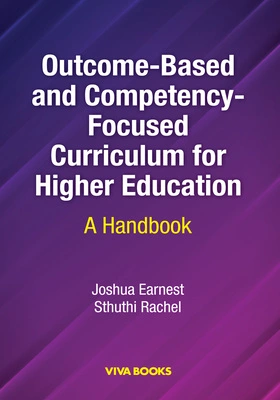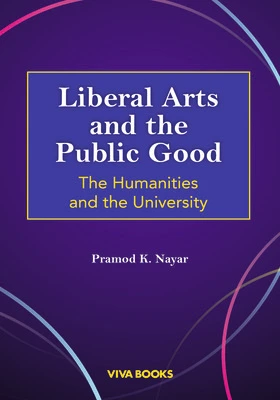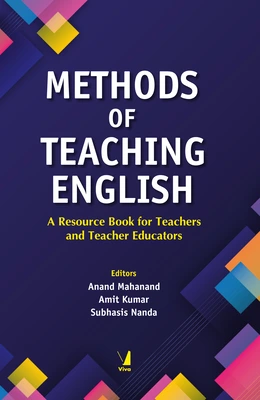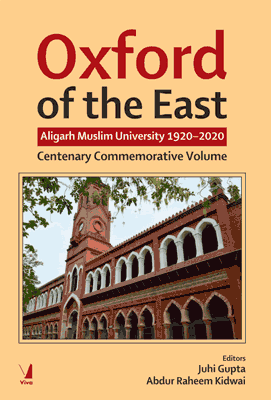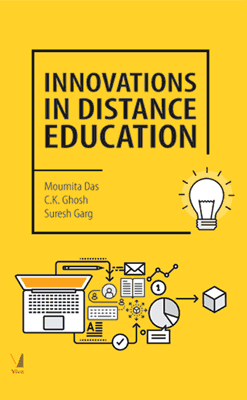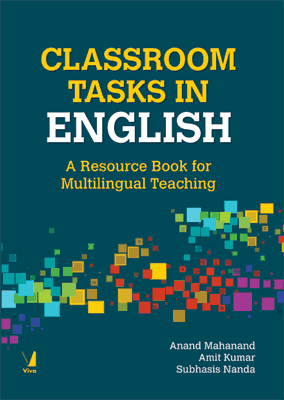Reviews:
“With the advent of the NEP-2020 in India, higher education programmes need to adopt with ‘Competency-based Framework’ related to OBE. There was a dire need of authentic OBE-related literature in the Indian context for scientifically developing ‘Outcome-based Curriculum (OBC)’ . The authors have designed and implemented different variants of OBC over the past decades, and this book is evidence to that.”
—Dr M.P. Poonia (Former Vice Chairman, AICTE)
“National Institute of Technical Teachers’ Training and Research (NITTTR), Bhopal has been spearheading the concepts of Outcome-based Curriculum (OBC) in India during the past decades, where the contribution of Dr. Joshua Earnest has been substantial. This unique book will greatly help the stakeholders of the higher education programmes for scientifically designing and implementing their OBCs.”
—Dr C. Thangaraj (Former Director, NITTTR, Bhopal and Former Vice Chancellor, Anna University of Technology, Chennai)
Description:
The curriculum is the constitution of any educational programme. To align with the NEP 2020, it has become necessary to re-design higher education programmes to student-centric ‘Competency based Framework’, in the Universities and Higher Education Institutions. Hence, Learning Outcomes (LOs) at different levels have to be incorporated, the guidelines of which are available in the national documents CCFrUGP December 2020, NCrF April 2023, NHEQF May 2023 and in this book. The rich experience of the authors in OBE makes this unique book quite valuable, as it is the only one of its kind in India. It is replete with examples demystifying some of the grossly misunderstood OBE concepts. A dash of figures, exhibits, highlighted boxes and exercises weaved into the lucidly written chapters help every student, teacher and examiner to implement OBC successfully. Possessing a personal copy of this book serves as a ready-reckoner to all stakeholders of the OBC.
Target Audience:
The book is for all the stakeholders of the higher education programmes which will help them implement the OBC successfully.
Contents:
Foreword
Preface
Acknowledgements
Abbreviations and Acronyms
Major Foundational Definitions of OBC
Chapter 1. Higher Education and Curriculum Development • Introduction • Curriculum and Syllabus • Concept of Syllabus • Concept of Curriculum • Curriculum Stakeholder Expectations • Curriculum Life Cycle • Curriculum Approaches • Curriculum Theories and Design • Humanistic Design Theory • Conservative Liberal Arts Design Theory • Social Reconstruction Design Theory • Occupational Design Theory • Deschooling Designs • Curriculum Development Models • Ralph Tyler’s Model • Gile’s Model • Hilda Taba Model • Wheeler’s Model • Walker’s Model • Distinctive Features of Curriculum Development Models • OBE Curriculum for HEI • Eclectic Curriculum Development Model • PDIE Curriculum Development Framework • Curriculum Development Principles • Summary • Review Exercises • Annexures
Chapter 2. Fundamentals of Outcome-Based Curriculum • Introduction • Beginnings of Outcome-Based Curriculum • Need for Outcome-Based Curriculum • Traditional Educational System and OBE • OBE Scenario in India • Objective-Based Curriculum • Skill-Based Curriculum • Competency-Focused Outcome-Based Curriculum • Significance of OBE • Concept of Learning • Learning Theories • Principles of Learning Process • Maxims of Learning • Concept of Instruction • Instructional Strategy and Instructional Methods • Choice of Instructional Methods • OBE Components • Impact of OBE • Summary • Review Exercises • Annexures
Chapter 3. Planning for Scientific Development of OBC • Introduction • Balanced Student Centric Curriculum • Curriculum Development Modes • Types of Outcomes • Verbs and Phrases Complicating Measurability of LOs • Principles for Framing Different Types of LOs • Planning the Curriculum • Curriculum Development Team • Action Plan for Planning the Curriculum Phase • Role of OBC Stakeholders • Occupational Analysis for Scientific OBC Development • Curricular Needs Assessment • Summary • Review Exercises • Annexures
Chapter 4. Designing OBC Programme Structure • Introduction • Curriculum Design Strategies • Individual Expertise-based Strategy • Committee-based Strategy • Scientific Design Strategy • Programme Structure Design • Programme Structure Design by Emulation • Adapt National Model Programme Structure • Tinkering of Current Programme Structure • Backward Design Programme Structure • Traditional and Scientifically Designed OBC Programme Structure • Scientific Design of OBC Programme Structure • Aims of the OBC • Goals of OBC • Macro-Level Outcomes • Competency Statements and Programme Structure Design • Credit Requirements for Programme Structure • Academic Bank of Credits • OBC Programme Structure Related Terminologies • OBC Credit Framework for UG Programmes • Coding for Course Clusters • Credits Distribution in UG Programme Structure • Summary • Review Exercises • Annexures
Chapter 5. Designing OBC Course Structure • Introduction • OBC Course Structure Design Process • Meso-Level Outcomes in OBC • Micro-Level Outcomes in OBC • Practicals Outcomes • Unit Outcomes • Affective Domain Outcomes • Course Map • Three-Level OBC Course Structure Model • Summary • Review Exercises • Annexures
Chapter 6. Outcome-based Teaching-Learning • Introduction • Curriculum Implementing Models • Overcoming-Resistance-to-Change (ORC) Model • Leadership-Obstacle Course (LOC) Model • Rand Change Agent (RCA) Model • Linkage Model • OBC Analysis for Implementation • Need of OBTL • Teaching Models to Develop Outcomes • Single-Input IPO Teaching Model • Multiple-Input IPO Teaching Model • Drill and Practice • Success-Failure Teaching-Learning Cycle • Role of Media in Instruction • Colour Choice in Design of Instructional Media • Design Guidelines for PowerPoint Presentation • Course Plan to Session Plan • Session Planning • Practical Outcome Development • Dave’s Taxonomy to Develop PrOs • Teacher Role in Improving Effectiveness of Practicum • Administrator’s Role in Improving Effectiveness of Practicum • Cognitive Domain Outcome Development • Krathwohl’s Taxonomy and Affective Domain Outcome Development • Other Taxonomies • CLO Integrates MiLOs • Significance of Project Work in OBC • Significance of Micro-Projects • Significance of Capstone-Projects • Teacher Role in Guiding Projects • Internship and Workplace Visits • Communication Skills Development • OBC Implementation Strategies • Self-Directed Learning Strategy • Factors Affecting the Implementation of OBC • Summary • Review Exercises • Annexures
Chapter 7. Outcome-Based Assessment • Introduction • Current Assessment Scenario in HEIs/Universities • Categories of Assessment • Norm-Referenced Testing • Criterion-Referenced Testing • Ipsative Assessment • Formative Assessment • Continuous Assessment • Summative Assessment • Assessment Tools • Characteristics of Good Assessment • Salient Features of Outcome-Based Assessment • Assessment of Cognitive Domain Outcomes • Table of Specifications (TOS) • Principles of Designing Good Questions • Condition and Criteria • Short-Answer Questions • Long-Answer Questions • Question Paper Design for Cognitive Skills Assessment • Practical Skills Assessment • Social Skills Assessment • Project Work Assessment • Criteria for Project Work Assessment • Portfolio-Based Assessment • Repository of Question Banks and Project Banks • Assessment Policy Protocols • Marks, Grades and Certification • Grade Point and Grade Point Index • Semester Grade Point Average • Alignment of OBTL and OBA with Outcomes • Role of Teachers in OBA • Summary • Review Exercises • Annexures
Bibliography
Index
About the Authors:
Joshua Earnest was at the National Institute of Technical Teachers Training and Research NITTTR, Bhopal for more than 36 years, teaching and training the academia in the area of OBE and wind power technology. He is the author of several books, the most recent and popular one is the Outcome-Based Curriculum in Engineering Education by PHI Learning, New Delhi. He is also the author of 'Outcome-based Curriculum' and 'Assessment' MOOC modules offered on SWAYAM platform. Presently, he is a popular OBE consultant to various universities and HEIs. Several of his published works are available online and on the YouTube as well.
Sthuthi Rachel is an assistant professor and has been teaching UG students for over a decade. Although her specialization is in very-large-scale integration VLSI design, her passion for teaching has spurred her to undertake experiments in OBE which has become the need of the hour for all universities and HEIs. To improve the teaching-learning T-L transactions, she has undertaken several experiments related to the OBE and has several papers published for the benefit of the academia.
